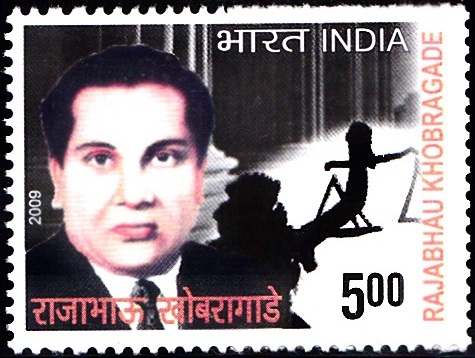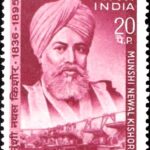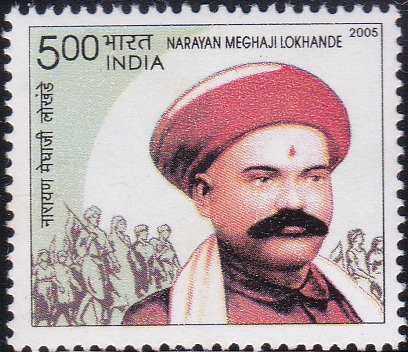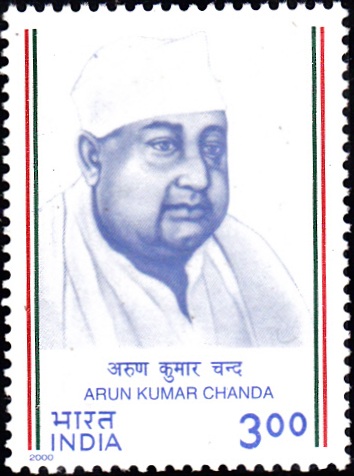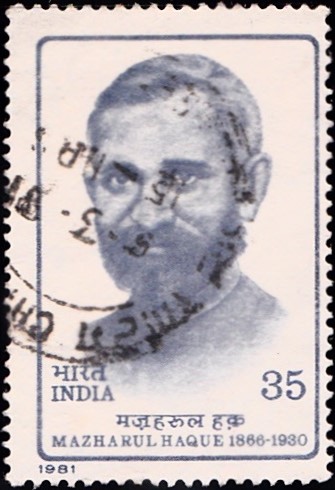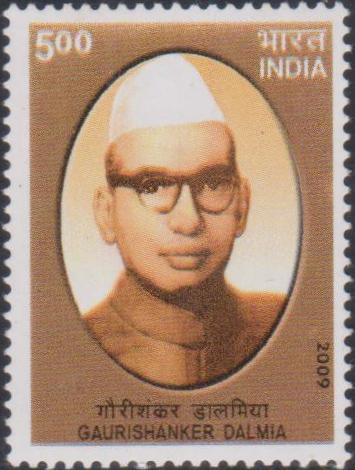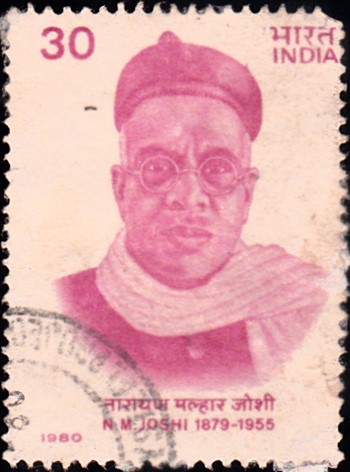
Narayan Malhar Joshi
A commemorative postage stamp on the Birth Centenary of N. M. Joshi, father of Indian trade union movement, general secretary of All India Trade Union Congress (AITUC) and follower of Gopal Krishna Gokhale :
 Issued by India
Issued by India
Issued on Jun 5, 1980
Issued for : The Indian Posts and Telegraphs Department is privileged to commemorate the father of the Trade Union movement in India by issuing a special postage stamp.
Description of Designs : The stamp and the first day cover depict the portrait of the Shri N. M. Joshi.
Type : Stamp, Postal Used
Colour : Carmine
Denomination : 30 Paise
Overall size : 3.91 x 2.90 cms.
Printing size : 3.55 x 2.54 cms.
Perforation : 13 x 13
Watermark : Printed on water–marked adhesive stamp paper
Number printed : 20,00,000
Number per issue sheet : 35
Printing process : Photogravure
Designed and Printed at : India Security Press
Name : Narayan Malhar Joshi
Born on Jun 5, 1879 at Goregaon, Kolaba district, Maharashtra, India
Died on May 30, 1955 at Bombay, Maharashtra, India
About :
- Narayan Malhar Joshi was born on 5 June 1879 at Goregaon in the Kolaba district of Maharashtra. The family originally belonged to Rayari village in Pune district but had migrated to Goregaon (Kolaba). After his primary education in Goregaon and secondary education in Pune, Narayan Joshi graduated from the Deccan College, Pune in 1901. After his graduation, he worked as a teacher in the schools at Ahmednagar, Bombay, Pune and Ratnagiri till about 1909.
- His zeal for public work led him to join the Servants of India Society in 1909. In 1911, he started the Social Service League and was intimately associated with its working till 1955. Gradually he started taking interest in labour problems and started a number of welfare centres, night schools, medical centres and industrial classes in labour areas. He started the All India Trade Union Congress in 1921 and worked as its Secretary till 1929. Disenchanted with the strikes in Bombay in 1928-29, promoted by the certain elements in the AITUC, he left the organisation and started the Trade Union Federation.
- From 1921 to 1947, he was an elected member of the Central Legislative Assembly. He was the prime mover behind several enactments on labour welfare; successive amendments of the Factory Act of 1881, Workmen’s Compensation Act (1924), Indian Trade Union Act (1926), Payment of Wages Act (1936), Employment of Children Act (1938), etc. He represented Indian Labour, at the behest of the Government of India, at the first International Labour Conference at Washington in 1919. He was a member of the Royal Commission on Indian Labour (1929-30). Between 1922 and 1948, he frequently represented Indian Labour at at the International Labour Organisation Conferences. He was Chairman of the Labour Sub-Committee of the Indian National Planning Commission (1937) headed by Jawaharlal Nehru. He was the President of the Railwaymen’s Federation in 1929. He was a prolific writer and journalist. He managed the Dnanaprakash, the Marathi daily of the Servants of India Society. In 1921 he started a Marathi weekly, the Kamgar Samachar. He passed away on 30 May 1955.


